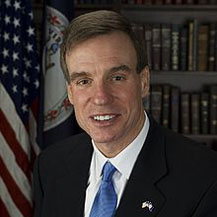
“I’m committed to working with this bipartisan group to get this bill through Congress to guarantee that everyone has access to justice,” Sen. Warner said. “This legislation represents a step in the right direction towards reforming our criminal justice system and better protecting Virginia communities from violent criminals. Ensuring that every punishment matches the crime will reduce over-incarceration and prison overcrowding, strengthen families, and save taxpayer dollars.”
The proposal narrows the scope of mandatory minimum prison sentences to focus on the most serious drug offenders and violent criminals, while broadening and establishing new outlets for individuals with minimal non-felony criminal histories to avoid mandatory minimum sentences under current law. The bill also reduces certain mandatory minimums, providing judges with greater discretion when determining appropriate sentences, and preserves cooperation incentives to aid law enforcement in tracking down kingpins. In addition to reducing prison terms for certain offenders through sentencing reform, qualifying inmates can earn reduced sentences through recidivism reduction programs.
According to an August 2015 study released by the nonpartisan Pew Charitable Trusts, federal sentencing laws enacted in the 1980s and 1990s have resulted in explosive growth in the federal prison population, which held nearly 800 percent more inmates in 2013 than it did in 1980. According to Pew, this growth in the prison population has driven a similar surge in taxpayer spending: from 1980 to 2013, federal prison spending increased 595 percent, from $970 million to more than $6.7 billion in inflation-adjusted dollars, according to the Pew study.
A summary of the bill is available here and the text of the legislation is available here.










